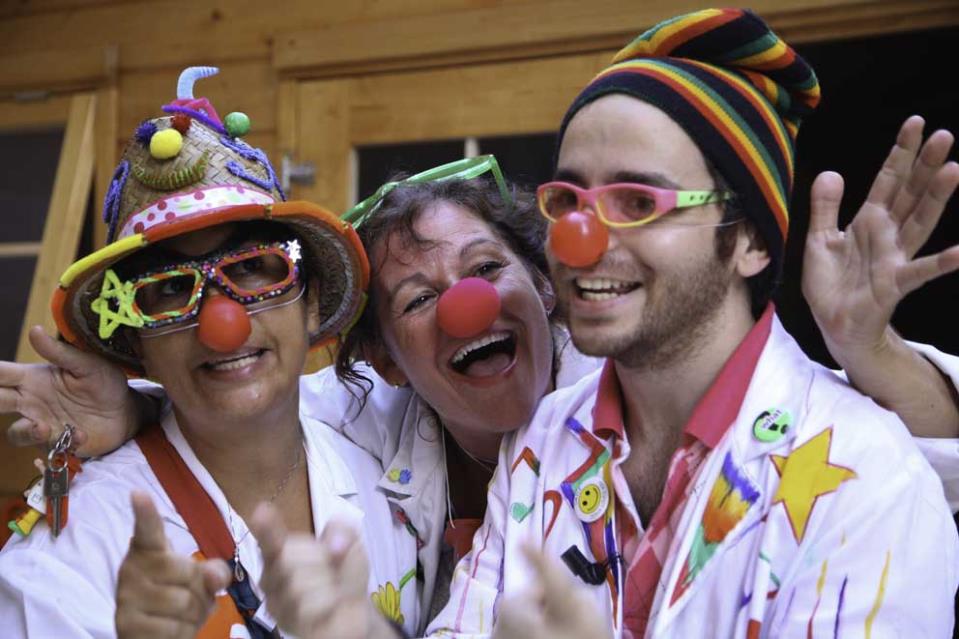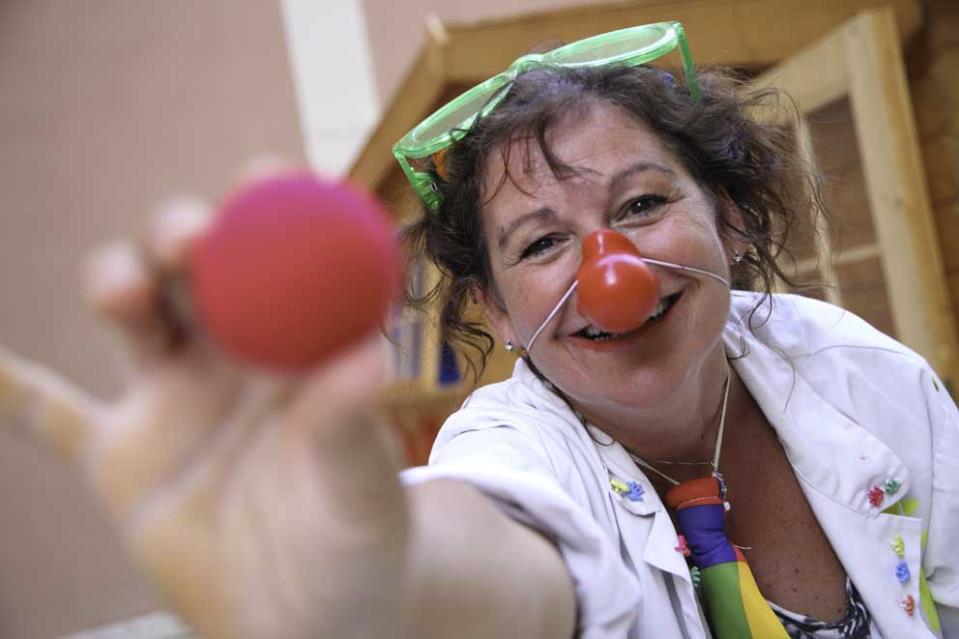Children's wards in hospitals are often heartbreaking to walk into. However a group of dedicated volunteers do their best to lighten up the situation, and put a smile on the patients' faces, at least temporarily. Therese Bonnici speaks to Dr Gimme 5, Dr Funny and Dr Oopsie from the clown doctors' team.
"If I manage to attract a child's attention for a short while, then that is satisfying enough. Even if they fail to smile; at least, they forget about their pain for those few minutes."
Corrine Wood is a doctor by profession, but twice a week, after her shift is done, Corrine enters the wards again, this time as Dr Gimme 5. Members of the staff recognize her, and so do some of the parents. However, at that point, she takes the role of a clown doctor. Corrine's fascination with clown doctors started years back, when her son was receiving treatment at a hospital in the Netherlands, and clown doctors used to frequent the wards. When she was informed that the project would be launched in Malta, she immediately decided to join.
Taking the role of Dr Gimme 5, Corrine enters the hospital wards asking for high-fives from those present. "One time, a child patient high-fived me, and only then did I realise he had no fingers whatsoever. It was heart-breaking, but I was overjoyed that he still decided to go along with it."
"I find we make a difference for parents too. Being stuck in hospital becomes very tedious. We all need a touch of colour, and a smile sometimes. It's exhilarating for those in the wards to have a member of staff address them as human beings, not patients or relatives, even if for a short while."
Manuel Catania, a senior officer in the telecommunications field, joined Dr Klown in 2011, and takes the role of Dr Funny. As a young child, he was inspired by the movie Patch Adams, and he made it a point that if Dr Klown was launched in Malta, he would join. "Some patients are hospitalised long-term, and our visits become something they look forward to. It's heart-warming when one of the patients recognizes you and smiles as soon you enter the ward."

There is still the misconception that one needs to have medical background in order to become a clown doctor. Maria Sant Fournier, also held that misconception, before she was told she could join. Maria joined last May, taking the role of Dr Oopsie.
"I was concerned that I won't be able to control my emotions upon encountering young patients. I cry very easily. But you do receive much more than you actually give. We can't change the situation of these young patients; we can't take away their pain. But we can lighten up the situation for a while."
"I remember one time, I entered rainbow ward with another clown doctor. One child has just received chemotherapy, and he was simply not in the mood. We could not attract his attention whatsoever. So we started joking along between us, and at one point this child burst out laughing and he couldn't stop. I could never forget that episode."

Clown Doctors need to undergo some intense and rigorous training, both artistically and psychologically. Training courses extend over a year, and members need to qualify to proceed from one phase to another. "I've learned clowning is a real serious business," Maria says. Training includes improvisational role play, body language, empathy and creativity skills. Every so often, clown doctors meet up to address certain issues, or situations they encountered. There is also a protocol the clown doctors need to follow, to ensure the patient's privacy and dignity.
"It is something I do as a hobby, but it's so much more than that. It does not only offer a sense of satisfaction for myself, but it also helps others. You gain so much more than you give. We're on a high during the shift; it generates a sense of positivity," Manuel says. He stresses that clown doctors can be helpful not only to young children, but also teenagers, and their parents.
Dr Klown is a non-profit organisation; however funds are required to purchase props and clothing, among others. Visit Dr Klown Day on the 18th October at the Point to help out.
Footage and photos Paul Jones